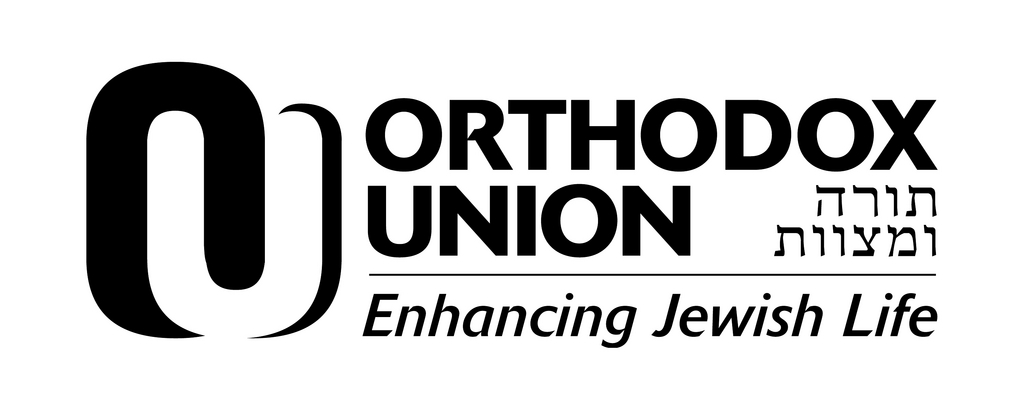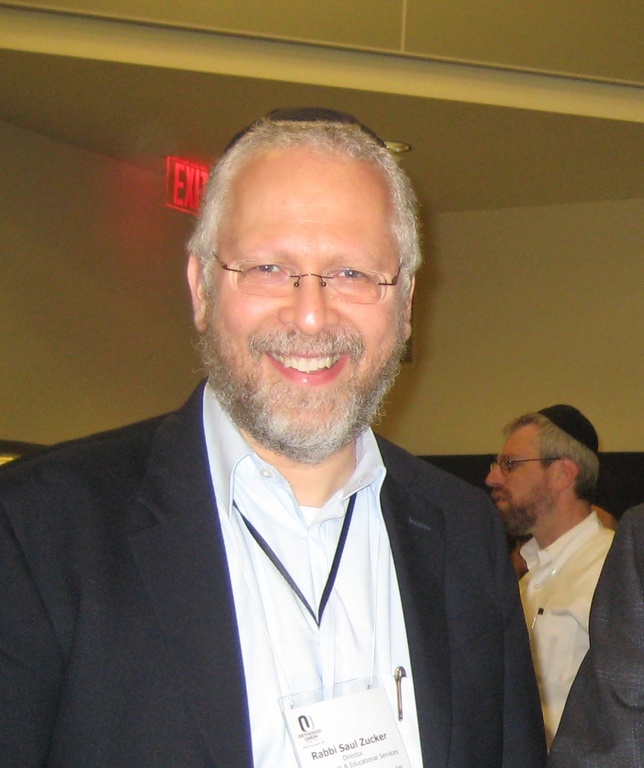Tuition by the nickel
Internet toolbar will help fund Jewish education
By Yaffi Spodek
Issue of June 19, 2009 27 5769
An easy opportunity to help your school raise money may be only a mouse-click away thanks to a new fundraising venture from the Orthodox Union.
For every single click on the OU’s Education Fund Toolbar — scheduled to launch in the next few weeks — a corporate sponsor will donate five cents to the OU Education Fund, which will be distributed to yeshivot and day schools around the country.
“Our goal is to send the toolbar to every Jewish home in America,” said Rabbi Saul Zucker, director of the OU’s recently developed department of day school and educational services. “The toolbar gets loaded onto your desktop and it costs the user nothing. When you access the Internet through the toolbar, for every click, our sponsors will donate a nickel to the OU education fund.”
Though five cents may not seem like a substantial amount of money, other organizations using a similar arrangement have generated as much as $600,000 a month in tool bar usage, Zucker noted. All of the money will be distributed to schools based on a specific formula for allocation, divided into three distinct categories.
Twenty percent of the money will be available as an emergency fund for schools struggling financially. “For example, if a small community outside of New York had only one day school, if that school were to fail, it would be the failure of the whole community,” Zucker explained.
Forty percent of the fund will be given to schools that meet certain criteria for exercising fiscal responsibility, “like a grant for schools that adhere to fiscal criteria,” Zucker said.
The final forty percent of the money generated from the toolbar will go to day schools and yeshivot across the country in the form of tuition vouchers for parents. The amount given to each school will be determined based upon the percentage of users who brought in revenues for the specific school with which they are affiliated.
“When someone registers to use the toolbar, they will be asked to identify with a specific school,” Zucker explained. “The toolbar uses internal accounting software, which will determine at the end of the quarter which percentage of the revenue was generated by users identified with each school. That percentage of the money will then go to the school, with the understanding that it will be used to lower tuition for their parents by whatever number of dollars it is.”
A second project that is expected to be finalized soon is a group health insurance program for Yeshiva and day school faculty and staff. As previously reported, it is expected to save participating schools tens of thousands of dollars on premiums.
“We have now secured a broker,” Zucker told The Jewish Star, “and as part of the plan, the company has agreed to do separate billing for each school, and each school will be paying its own premiums... In the next few weeks, we will present the plan to schools that have expressed interest.”
The North Shore Hebrew Academy in Great Neck is one of several local schools that participated in an OU survey to formulate the insurance proposal based on actual numbers and ages of potential participants.
“It’s a wonderful concept,” said Arnie Flatow, the executive director of North Shore. “Instead of having each school deal with their own health plan and substantial annual increases, a national health care plan for all day schools with thousands of participants could potentially have much lower premiums and save thousands of dollars.”
Flatow said that North Shore would definitely consider signing on, provided the plan is as good as or better than the school’s existing one, with lower rates.
“If it is a reasonable plan similar to what we have, then it makes sense to join it,” he said. “We have given the OU the information and we are waiting to see what they’ll come up with... It’s a great idea and we welcome any concepts that we can collectively implement to help the day school community reduce costs.”
Other schools also expressed positive expectations for the OU plan. “It [the health insurance plan] definitely sounds like something we should be looking into and I don’t see why we wouldn’t go forward with it,” said Robert Shelly, Director of Operations and Development at the Hebrew Academy of Nassau County. “If we are able to create a global umbrella organization under which all yeshiva day schools fall, that is a good approach and a potentially great idea.”
HANC provided the requested information to the OU as well, including details of their current policy and a summary of its benefits. “We are always looking for ways to reduce expenses and challenge the status quo,” Shelly said.
On June 13, Congregation Anshei Chesed in Hewlett hosted a community forum entitled “Crisis in Jewish School Tuition: Are There Any Solutions?” The symposium was chaired by OU President Stephen Savitsky, and featured noted local experts including Rabbi Mordechai Kamenetzky, the dean of Yeshiva of South Shore, Jack Katz, Charlie Harari and Avi Lauer.
Lauer, who is vice president for legal affairs and general counsel at Yeshiva University, spoke about the YU Institute for University Partnership of the Azrieli Graduate School of Jewish Education, which has been working with 17 local yeshivot to help them save costs, increase non-tuition revenues and review educational methods. The Partnership is also working closely with three schools, HAFTR, TAG and Yeshiva Ketana, which were selected for free consultative services to be provided by former McKinsey consultant Harry Bloom, now an employee of the YU Institute.
Other initiatives the OU hopes to implement include an energy conversion plan, in which schools are referred to energy companies specializing in conversion from electric to solar energy. According to Zucker, one school in Bergen County, NJ, already utilizing this resource, anticipates savings of $80,000 a year in energy bills. “The OU has been very instrumental in lobbying for federal money to be given to private schools who do energy conversion for Greening America,” Zucker added.
The Kehilla Fund, designed and partially sponsored by the OU, has also been launched in Bergen County, with an eventual plan to expand it to other communities nationwide. “It’s a campaign to get every family in the community to sign up via a web site to have their credit card or checking card debited by a fixed amount of their choosing every month, allocated per capita based upon the number of students in the schools,” Zucker explained. “We hope to collect approximately $1 million to be distributed to day schools.”
Zucker is also open to exploring more unconventional methods of fundraising, including one with a certain air of ‘back to the future.’ After speaking to a day school in Norfolk, Virginia, that generates close to $300,000 a year by hosting bingo nights, Zucker is now in talks with a firm that helps coordinate bingo events for non-profits across the country.
“It is an option that sounds a little funny, but the money is real money,” Zucker said. “We’re going to host a meeting for interested schools either at the beginning or end of the summer.”
Zucker, who joined the Orthodox Union last September, is excited about the proposed plans and looks forward to implementing them in time for the 2009-10 school year. In January, he convened a meeting and conference call with school administrators to introduce some of the initiatives, and is eagerly anticipating the coming weeks during which he will unveil the final proposals.
“The response so far has been very positive, and we are excited to move forward,” he said. “We are going to continue to support and explore other cost-saving opportunities.”

 50.0°,
Fog/Mist
50.0°,
Fog/Mist 







